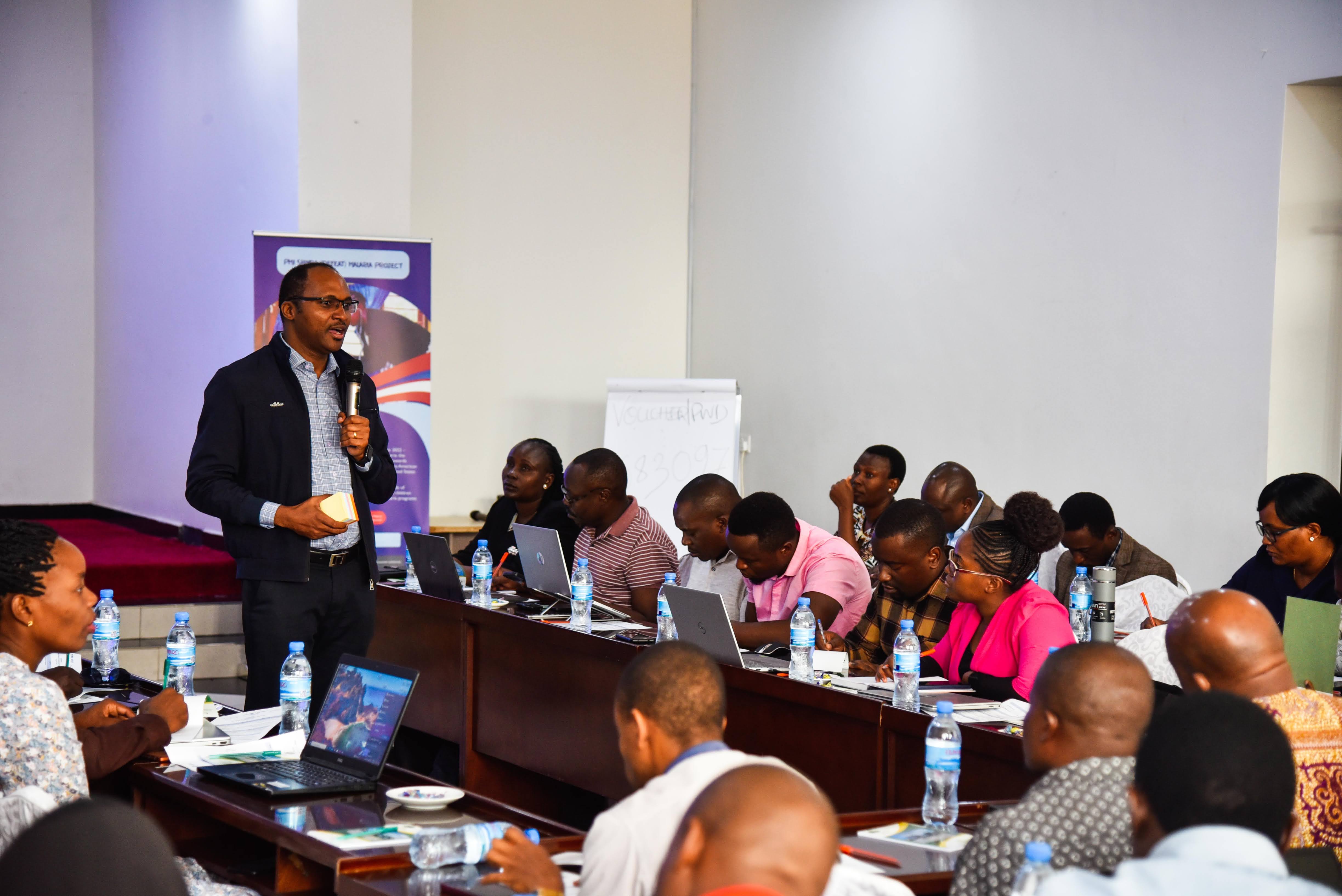
PLANNING: Malaria program strategizes for third year of implementation

On July 16, 2024, the PMI Shinda (Defeat) Malaria project, which is funded by the American people through the U.S. President’s Malaria Initiative (PMI) and implemented by Ifakara Health Institute and partners, conducted a planning meeting for the third year.
The meeting, held in Mwanza City, was attended by representatives from the project’s three intervention regions of Katavi, Kagera, and Tabora.
The primary goals of the meeting were to review the progress made over the past year, identify challenges in implementing malaria-related interventions, and plan for the upcoming third year of the PMI Shinda Malaria project in these regions.
The meeting was inaugurated by Dr. Dunstan Bishanga, Chief of the Party for the project. Dr. Bishanga welcomed the participants and guided them through activities designed to assess regional performance, identify challenges, and determine the necessary interventions to enhance malaria services.
The meeting involved Regional Medical Officers, District Medical Officers, Regional Malaria Focal Persons, and Regional Pharmacists, along with their subordinates. Regional Malaria Focal Persons (RMFP) from each area presented the malaria situation in their respective regions.
Dr. Ramadhan Karume, Malaria Focal Person for Katavi, highlighted the importance of close collaboration between the project and Councils Health Management Teams in successfully implementing malaria-related activities.
“I commend the PMI Shinda Malaria project for their relentless efforts and for working closely with the Katavi Regional Health Management Teams, especially in ensuring that our health workers receive proper training in malaria diagnosis and treatment,” said Dr. Karume.
The meeting facilitated discussions aimed at improving malaria interventions and subsequently contributing towards malaria elimination efforts in their respective regions.
